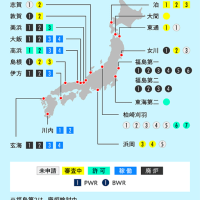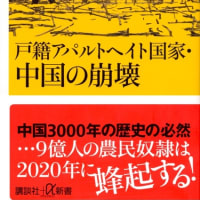2014-11-23 07:34:25 AFP. swissinfo
Switzerland each paper and Abenomics are criticized.
Fumi Kashimada
151
Politics Economy
2014-11-18 17:11
Although it was Prime Minister Shinzo Abe who advertized Abenomics in every country in the world .... (AFP)
As for Switzerland each paper, Abenomics was uniformly criticized in response to the announcement that the gross domestic product (GDP) of the term ended 2014 7 September of Japan became minus growth continuously 2 4 half year.
Each paper also including further easing of monetary policy of the Bank of Japan attaches the question mark to the economic policy of the present government.
Swiss News Agency (SDA/ATS) attached the title of "being the crisis ? of "Abegeddon" to Nippon."
This is the coined word which united Armageddon (the end of the world) with Prime Minister Shinzo Abe, and the British economic magazine had murmured it so by the twitter.
The real growth rate of GDP which Cabinet Office announced on the 17th although it was the Abenomics currently praised from the stock market is a 1.6% decrease (annually adjusted basis).
A result which private-sector economists' increase of 2.1% of average prediction is large, and differs was brought.
Switzerland each paper receives this and Abenomics is strengthening the view that economy of Japan which suffers the deficit exceeding 250% or more of GDP cannot be turned around.
Swiss News Agency reported [ that other two effects are already fading and ], before three flat knots of three arrows (money market relaxation, a fiscal policy, a growth strategy) of Abenomics were released.
Left influential newspaper Tages Anzeiger is spelled like this to irony.
Prime Minister Abe [ " / "Japan returns" ] was telling in the past which is not so far.
It means returning to the top in the world.
After the economic policy named Abenomics starts, Japan has returned truly in a little less than two years.... It is " to a crisis.
Why did business fall?
What is the reason to which the GDP growth rate of Japan was subtracted?
At the interview of the paper, Prime Minister Abe criticizes a special correspondent, Mr. Christoff Neidhardt, of Tages Anzeiger paper as there being a problem in a policy design with emphasis on a rise on stock price.
"He made one set of a monitor prepare for one's office in July, 13.
It is for seeing the Nikkei stock average.
It is because economy thought that it looked favorably and its popularity also went up when the Nikkei stock average went up.
But the Nikkei stock average is actually insufficient for planning economic conditions of Japan.
This also judges" conservatives' influential newspaper NZZ which people also know that the praised Abenomics has also already lost effect at the beginning.
The paper mentions why [ two ] economy of Japan is damping.
One is depression of personal consumption.
Another is the downturn of business investment.
By domestic demand downturn, the company gives priority to clearance of the goods in stock over production expansion, and if negative to investment, it will discuss.
What that personal consumption and business investment have hung low presupposes that it is equal also to defeat for the Abe Administration is the Switzerland national broadcasting (SRF).
a certain economist's analysis is introduced, saying, "when Mr. Abe would raise the psychology of consumers or a company by the past several months, it tackled intensively, and psychology was also utilized, when the optimistic view would be extended and business would be heaped up."
It criticizes to the Bank of Japan which continues printing the gold "which however, must be referred to as having finished this experiment with failure for the moment."
Also by all means [ of further easing of monetary policy by the Bank of Japan ], Switzerland each paper is discussed in parallel to Abenomics.
Local paper Sankt Gallen Tak Bratt writes that it is people that wear the demerit of money market relaxation.
"The government and the Bank of Japan tried to support the stock market in the short term, demote the value of yen gradually simultaneously, and accelerate export.
However, the exporter returned the benefit of benefits from the weaker yen to neither consumers nor product development."
The Bank of Japan gives up the original duty to protect currency, and criticizes Tages Anzeiger paper as it seeming to be the "dealer in illicit drugs" who continues printing a bill for the Japanese economy which is hungry for new money bitterly.
What further easing of monetary policy of the Bank of Japan argues "Is a question about whether it was the right prescription" is NZZ.
As the reason, with a superfluous weak yen, the profits of an importer decrease sharply and mention the point that the fuel cost also became high sharply.
Moreover, what "an impression as if the Bank of Japan had to wedge itself in the financial policy again because a politician does not finish off his homework is given to a market also for" is added to the reason.
It is "a general election is the futility of time."
The Abe Administration postponed the consumption tax increase and announced dissolution of the House of Representatives.
Local paper Aargauer Zeitung has indicated "Mr. Abe is electing, and before economic recovery is more overdue, he is going to get the confidence to Abenomics from people."
It is Swiss News Agency and NZZ which are judged that it is "futility of time" to hold a general election in December.
The economic reform which Mr. Abe promised did not start yet, either, but Swiss News Agency has carried the talk of economist living in Tokyo, saying "there is no time in performing improvement in the health of structural reform and finances."
NZZ is summarized as follows.
"Everybody is waiting to perform structural reform, deregulation, and liberalization of a market eagerly.
If Abenomics is a good economic policy, time to perform it is being lost.
The system of the labor market is strict and too much many subsidies are spent on agriculture.
Furthermore, a corporation tax is also too high.
In other markets, such as an energy market, there is no competition too much.
Mr. Abe has to show courage with cabinet members here.
A new election is only the futility of time."
Fumi Kashimada and swissinfo.ch -- this report has a three-affair comment
A comment is written. --
Anonymity 2014/11/20 0:36
Let's see exactly and domestic media should go, although there are many affirmative comments and they are dazzled!
An answer is written. --
Peter 2014/11/20 7:49
Only to [ before the U.S. dollar British pound changes to a weak yen by Abenomics ] the Swiss franc was a weak-yen trend.
That is, Japanese people are unwilling to go to travel Switzerland, even when he likes Heidi.
Since it is a weak yen increasingly, the policy of the Abenomics + Bank of Japan is a case of life and death for Switzerland of a country promoting tourism as a major industry.
Therefore, I feel [ which is criticized ] like.
2014-11-23 07:34:25 AFP. swissinfo
スイス各紙、アベノミクスを批判
鹿島田芙美
151
政治 経済
2014-11-18 17:11
アベノミクスを世界各国で宣伝した安倍晋三首相だったが……
(AFP)
日本の2014年7~9月期の国内総生産(GDP)が2四半期続けてマイナス成長になったとの発表を受け、スイス各紙は一様にアベノミクスを批判した。日本銀行の追加金融緩和も含め、各紙は現政権の経済政策に疑問符をつけている。
「ニッポンに『アベゲドン』の危機?」との見出しを付けたのは、スイス通信(SDA/ ATS)だ。これは、安倍晋三首相とアルマゲドン(世界の終わり)を合わせた造語で、英国の経済誌がツイッターでそうつぶやいていたものだ。
株式市場からもてはやされているアベノミクスだが、17日に内閣府が発表したGDPの実質成長率は1.6%減(年率換算)。民間エコノミストらの平均予測2.1%増とは大きく異なる結果となった。
スイス各紙はこれを受け、アベノミクスはGDPの250%以上を超える赤字を抱える日本の経済を回復させることはできないとの見方を強めている。スイス通信は、アベノミクスの3本の矢(金融緩和、財政出動、成長戦略)の3本目が放たれる前に、既にほかの2本の効果が薄れてきていると報じた。
左派の有力紙ターゲス・アンツァイガーは皮肉にこう綴る。「『日本は戻ってくる』と安倍首相はそう遠くはない過去に語っていた。世界のトップに戻る、という意味だ。アベノミクスという名の経済政策がスタートしてから2年弱、日本は本当に戻ってきた……危機へと」
なぜ景気が落ち込んだか
日本のGDP成長率がマイナスになった理由は何だろうか。ターゲス・アンツァイガー紙の特派員クリストフ・ナイトハルト氏は同紙のインタビューで、安倍首相が株価上昇に重点を置いた政策設計に問題があると批判する。「13年7月、彼は自分の事務所に1台のモニターを用意させた。日経平均株価を見るためだ。日経平均株価が上がれば、経済が好調に見えて自分の人気も上がると考えたからだ。だが実際、日経平均株価は日本の経済状況を図るには不十分だ。このことは国民も知っている」
保守派の有力紙NZZも、当初は褒められたアベノミクスももはや効力を失っていると断じる。同紙は、日本の経済が失速している理由を二つ挙げる。一つは個人消費の落ち込み。もう一つは、企業投資の低迷だ。内需低迷で、企業は生産拡大よりも在庫整理を優先しており、投資に消極的だと論じる。
個人消費も企業投資も低迷していることは、安倍政権にとっては敗北にも等しいとするのは、スイス国営放送(SRF)だ。「安倍氏はここ数カ月、消費者や企業の心理を向上させようと集中的に取り組み、楽観的な見方を広げて景気を盛り上げようと心理学も活用した」と、あるエコノミストの分析を紹介する。「しかし、今のところ、この実験は失敗に終わっていると言わざるを得ない」
金を刷り続ける日銀に批判
スイス各紙はアベノミクスと並行して、日本銀行による追加金融緩和の是非も論じている。地方紙ザンクトガレン・タークブラットは、金融緩和のデメリットを被るのは国民だと書く。「政府と日銀は、株式市場を短期的に支援し、同時に円の価値を徐々に下げて輸出に拍車をかけようとしていた。しかし、輸出企業は円安効果の恩恵を消費者や製品開発に還元しなかった」
ターゲス・アンツァイガー紙は、日銀は通貨を守るという本来の任務を投げだし、新しいお金に飢える日本経済のために紙幣を刷り続ける「麻薬密売人」のようだと痛烈に批判する。
日銀の追加金融緩和は「正しい処方箋だったのか疑問だ」と論じるのはNZZだ。その理由として、過剰な円安では輸入企業の利益が大幅に減少し、燃料費も大幅に高くなった点を挙げる。また、「政治家が自分たちの宿題を片付けないことで日銀がまた金融政策に割り込んでいかねばならないかのような印象を市場に与える」ことも理由に加えている。
「総選挙は時間の無駄」
安倍政権は消費増税を先送りし、衆議院解散を発表した。地方紙アールガウアー・ツァイトゥングは「安倍氏は選挙を行うことで、景気回復がこれ以上遅れる前に、国民からアベノミクスへの信任を得ようとしている」と指摘している。
12月に総選挙を行うことは「時間の無駄」だと断じるのは、スイス通信とNZZだ。安倍氏が約束した経済改革はまだ始まってもおらず、「構造改革および財政の健全化を行うには時間がない」と、スイス通信は東京在住のエコノミストの話を載せている。
NZZは次のようにまとめる。「構造改革、規制緩和、市場の自由化が行われるのを皆が待ち望んでいる。アベノミクスが良い経済政策であるならば、それを実行する時間がなくなりつつある。労働市場は制度が厳格で、農業にはあまりにも多くの補助金が費やされている。さらに法人税も高すぎる。エネルギー市場などほかの市場では競争がなさすぎる。ここで安倍氏は閣僚と共に勇気を見せなくてはならない。新しい選挙は、時間の無駄でしかない」
鹿島田芙美, swissinfo.ch
コメントを書く…
匿名 2014/11/20 0:36
日本国内メディアは肯定的なコメントが多くて、幻惑されますが、きちんと見て行きましょう!
返答を書く…
ペーター 2014/11/20 7:49
アベノミクスで米ドル英ポンドが円安に転じる前からスイスフランだけは円安傾向でした.すなわち日本人はハイジが好きでもスイス観光に行きたがらないわけです.ますます円安ですから,観光立国のスイスにとってアベノミクス+日銀の政策は死活問題なんですね.だから批判してるだけのような気がします.




















※コメント投稿者のブログIDはブログ作成者のみに通知されます